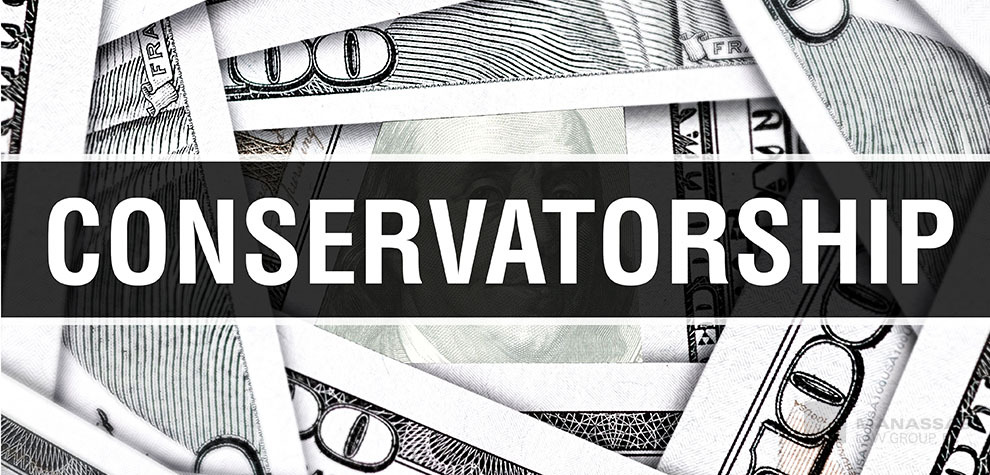Do you know what it means to have legal guardianship in Virginia?
As our parents begin to age, legal guardianship and conservatorship become a concern. Guardianship and conservatorship are both methods by which family members can control the affairs of a family member.
The attorneys at the Manassas Law Group can help you through the process of securing legal guardianship in Virginia. Our attorneys have experience filing for and securing the appointment of Guardians and Conservators. These proceedings can be complex and are always emotionally fraught.
In this post, our expert attorneys will explain some of the details surrounding conservatorship and legal guardianship in Virginia.
What are Conservatorship and Guardianship?
The two serve similar purposes, but there are key differences.
First of all, a legal guardianship in Virginia is when a Virginia court determines a person cannot manage their own affairs. The court will appoint a guardian and/or a conservator for that person.
The person for whom the courts appoint the guardian or conservator is the “incapacitated person”.
A guardian is a person the courts will appoint to handle the general affairs of the incapacitated person.
A conservator is a person the courts appoint to handle the financial affairs of the incapacitated person.
The guardian and the conservator can be the same person, but they do not have to be.
What are a Guardian’s Duties?
Legal guardianship in Virginia does not mean the guardian is liable for the actions of the incapacitated person. The conservator is not liable for the actions of the incapacitated person either. Guardians and conservators do not need to spend their own money to care for the incapacitated person.
Legal guardianship in Virginia requires the guardian to:
- Encourage the incapacitated person to take part in decisions
- Visit the incapacitated person often enough to know their capabilities, limitations, and needs
- File annual reports with the Department of Social Services. These reports must include the incapacitated person’s medical condition, living arrangements, and the guardian’s recommendations.
What are a Conservatorship’s Duties?
The conservator must:
- Take care of and preserve the assets and income of the incapacitated person
- File annual accountings with the Commissioner of Accounts showing all money and property received and disbursed
What is the Process for Appointing A Guardian or Conservator?
Any person can file a petition with a Virginia Circuit Court alleging there is an incapacitated person in need of a guardian or conservator. The person the petition alleges to be incapacitated is called the respondent.
For example, let’s say that your elderly grandmother has dementia and can no longer manage her financial affairs. Your family wants to appoint a conservator to manage them for her. So, the family would file the petition claiming your grandmother needs a conservator. From here, your grandmother then becomes the “respondent”.
The petitioner must file the petition in the Circuit Court for the city or county the respondent lives in. If the respondent lives in a nursing home, you can file the petition in the city or county they lived in immediately prior.
After the filing of the petition, the court will schedule a hearing. At this hearing, the court will hear evidence as to why conservatorship or guardianship is necessary. The court will also hear evidence as to who it should appoint and why.
Does The Law Protect the Rights of an Incapacitated Person?
In short, yes. Virginia law does protect the rights of the incapacitated person.
The respondent, or the person who allegedly needs a guardian, will receive a copy of the petition. The court will also notify them of the hearing.
The respondent has a right to appear at the hearing. They can have a jury trial, and subpoena and cross-examine witnesses. The respondent has the right to hire a lawyer as well. The court can also appoint a public defender to defend the respondent.
The court must also mail a copy of the petition to the respondent’s adult relatives. This includes their spouse, adult children, adult siblings, or parents.
Virginia courts will also appoint a guardian ad litem. This is an attorney who represents the best interests of the respondent. But this guardian ad litem does not represent the respondent in court. Rather, they will tell the court what they think is best for the respondent. The guardian ad litem will visit the respondent, advise them of their rights, and investigate the facts in the petition.
The guardian ad litem must attend the hearing. They will advise the court on whether or not the respondent needs a guardian or conservator. They will also advise the court on the level of power the guardian or conservator should have, and who the court should appoint to these roles.
Their purpose is to impartially judge whether or not the respondent actually needs a guardian or conservator.
The goal of the Virginia courts is to allow anyone who can remain independent to do so; if the respondent does not want a guardian or conservator and they do not need one, Virginia courts will not appoint one.
A licensed psychologist will also prepare a report for the court. This report will detail the respondent’s mental and physical health, as well as some other things the court must consider. These considerations include:
- The limitations of the respondent
- The respondent’s maximum self-reliance and independence
- Benefits of alternatives to legal guardianship in Virginia
- The actions the guardian or conservator will perform
- The suitability of the proposed guardian or conservator
- Whether there is a chance for neglect, exploitation, or abuse.
This last point is really the crux of the matter. The entire process ensures that no one can take control of another person’s affairs maliciously.
When Will A Court Appoint A Guardian or Conservator?
The court will not find the respondent to be incapacitated simply based on poor judgment.
For instance, if your father is of completely sound mind and loses all his savings on a bad investment, that is not enough to appoint a conservator for him. He is not an incapacitated person, he simply showed poor judgment.
A court will only appoint a guardian or conservator if the respondent cannot do either or both of the following:
- Meet the essential requirements for their own care
- Manage property or financial affairs to provide for themselves
Are There Alternatives to Legal Guardianship in Virginia?
There are alternatives to conservatorship as well as legal guardianship in Virginia.
The most viable alternative to legal guardianship in Virginia is a durable power of attorney. In this case, the incapacitated person must have planned ahead and signed over power of attorney in Virginia. A court will not appoint a guardian or conservator to someone who has a power of attorney unless their agent is not acting in their best interests.
If a person only needs help making medical decisions, a guardianship is not necessary. Virginia law allows for close adult relatives such as children and spouses to make medical decisions for you.
Contact the Manassas Law Group
The Manassas Law Group has extensive experience in family law, including beneficiary designations, trusts in Virginia, and legal guardianship in Virginia. If you or someone you know needs guidance through the process of guardianship and conservatorship, contact us by calling 703.361.8246. You can also arrange a consultation by filling out a quick form on our website.
















